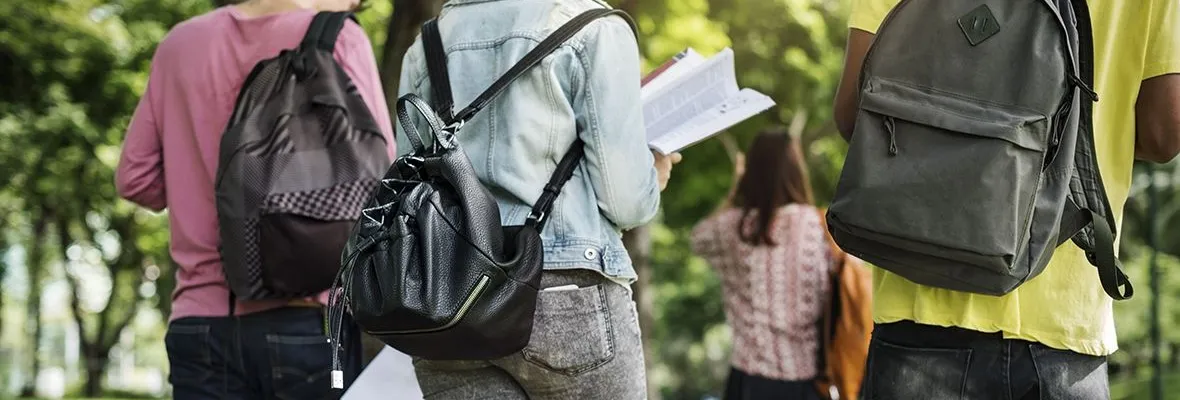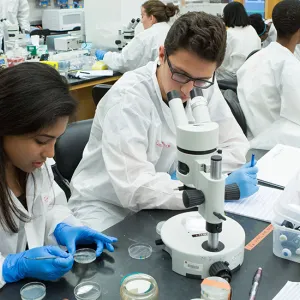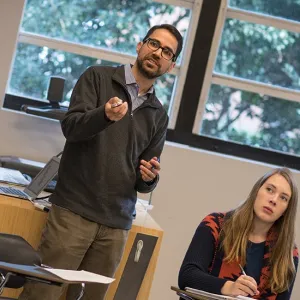As institutions work to address issues of campus sexual assault and misconduct, students are at the center of those efforts. The students most affected are those who have themselves been victimized. Universities are taking steps to ensure that victims are supported and that processes for reporting and addressing claims of sexual assault and misconduct are clear and straightforward. Campuses are also taking steps to ensure that the rights of those accused of sexual assault and misconduct (respondents) are protected and that standards for adjudicating claims are clear, transparent, and fair.
Over the last three academic years, 100% of responding institutions have developed, redefined, or enhanced programs to assist victims of sexual assault and misconduct.
Many institutions have hired additional staff to support victims. 91% (51/55) of responding institutions indicated that over the last three academic years, they have devoted additional resources to victim support. As discussed in more detail in the Resources section of this report, many institutions have created new positions in counseling, advocacy, response, investigation, and other relevant functions.
Institutions have hired a variety of specially trained staff, or trained existing staff, to better assist victims. For example, the University of Oregon added SANE nurses (Sexual Assault Nurse Examiners) to the staff of its Student Health Center. According to the Rape Abuse & Incest National Network (RAINN), a SANE “is a Registered Nurse who has received special training so that s/he can provide comprehensive care to sexual assault victims. In addition, s/he is able to conduct a forensic exam and may provide expert testimony if a case goes to trial.” The University of Colorado Boulder dedicated support and funding to establish a SANE program at the Boulder Community Health Hospital.
Prior to the inception of this program, those seeking a SANE examination needed to travel a significant distance. Staff at Rutgers University–New Brunswick’s Student Health CAPS (Counseling, Alcohol and Other Drug Assistance Program & Psychiatric Services) participated in training in Cognitive Processing Therapy (CPT), an evidence-based counseling treatment for post-traumatic stress disorder (PTSD), to provide better support to victims of sexual violence. Health and Wellness at the University of Toronto’s St. George campus has hired additional health care professionals with specialized trauma-informed training. Johns Hopkins University hired two specialized counselors with expertise in addressing issues related to sexual assault and misconduct.
Institutions have added services for victims and made existing services easier to understand and obtain. For example, the University of Kansas has designated staff as confidential advocates to assist victims in navigating campus policies and resources. KU’s CARE (Campus Assistance Resource and Education) Coordinator provides individualized therapeutic support, education and advocacy navigating resources, support during reporting (both KU and criminal), and help in obtaining interim measures (like housing and academic support). One objective of these efforts is to prevent or lessen disruption of the victim’s education. Brandeis University’s counseling center has a multilingual staff, including therapists who speak Cantonese, French, German, Hebrew, Mandarin, and Spanish to support the large population of international students. The University of Iowa’s Rape Victim Advocacy Program (RVAP) provides 24-hour response, advocacy, counseling, and medical and legal advocacy.
Institutions have taken steps to streamline and simplify policies and procedures regarding sexual assault and misconduct, and to make them more transparent so that resources are easier to use. Several institutions have clarified and made readily available information about which university resources are confidential. Other universities have standardized their policies. For example, the University of Colorado Boulder revised campus policies, as well as processes and procedures, for handling policy violations, making the standards for investigation equivalent for all students, staff, and faculty.
At Vanderbilt University, the Title IX Coordinator and investigative staff have developed a sample timeline and a one-page flowchart of the investigative process to help students better understand the university process for investigating reports of sexual misconduct.
The University of Illinois at Urbana-Champaign launched a new website to provide students, faculty, staff, parents, and community members with a one-stop resource for education, prevention, reporting, and response to sexual misconduct. The site provides information about confidential and non-confidential resources, university policies, disciplinary procedures, and frequently asked questions on numerous topics related to reporting options, university options, and the student disciplinary process. The “We Care” website was designed to be easy-to-use and mobile friendly and to provide quick links for reporting an incident, as well as to provide support for those who have been impacted by sexual misconduct.
Institutions have added a range of programs geared specifically to victims. For example, the University of Florida’s Counseling and Wellness Center offers a Sexual Assault Survivors therapy group for students. The University of Michigan has added a counseling support group for survivors on campus, as has Boston University. University of Kansas Housing developed a new policy that allows advocates to be dispatched to residence halls at night if needed to provide in-person support to victims who do not want to receive a SANE Examination.
Universities have developed relationships and working agreements with off-campus institutions, including hospitals, law enforcement, and other resources for victims. For example, the University of Rochester has entered into Memorandas of Understanding (MOUs) with multiple community agencies (e.g., RESTORE/ Rape Crisis, Willow Domestic Violence Assistance, Legal Aid, Rochester Police Department) to ensure that students can access support in the Rochester community as well as through campus resources.
Case Western Reserve University created a partnership with the Cleveland Rape Crisis Center to offer students on-campus, confidential, after-hours drop-in sessions. University at Buffalo - State University of New York partnered with a local crisis advocacy organization to offer an on-campus advocate. This individual will meet with students, faculty, and staff to provide confidential advice and assistance. Rice University has working agreements with the Houston Area Women’s Center, the Montrose Center, the Texas Association Against Sexual Assault, and the Harris County Domestic Violence Coordinating Council, as well as a working relationship with Harris County Social Services: Sex Crimes Unit and an assigned Special Agent from the Federal Bureau of Investigations.
In addition to victims of sexual assault and misconduct, attention has focused on students accused of committing violations (respondents). Institutional processes for responding to sexual assault and misconduct cases are shaped by several factors, including federal and state laws and Department of Education guidance. Universities have worked to ensure that respondents are treated fairly and are provided with a clear understanding of the university’s processes and available resources. Several institutions mentioned that obtaining respondent feedback, in addition to feedback from students who report, is important to improving investigation and adjudication processes on campus.
For example, the University of North Carolina at Chapel Hill utilized a faculty member to interview reporting and responding parties who had gone through the formal investigation process to learn what worked, what did not work, and where the university might make improvements. Those data were aggregated and provided in oral form to the policy review committee to protect the identities of the parties involved. Institutions are also taking steps to ensure that support services for respondents are equitable.




